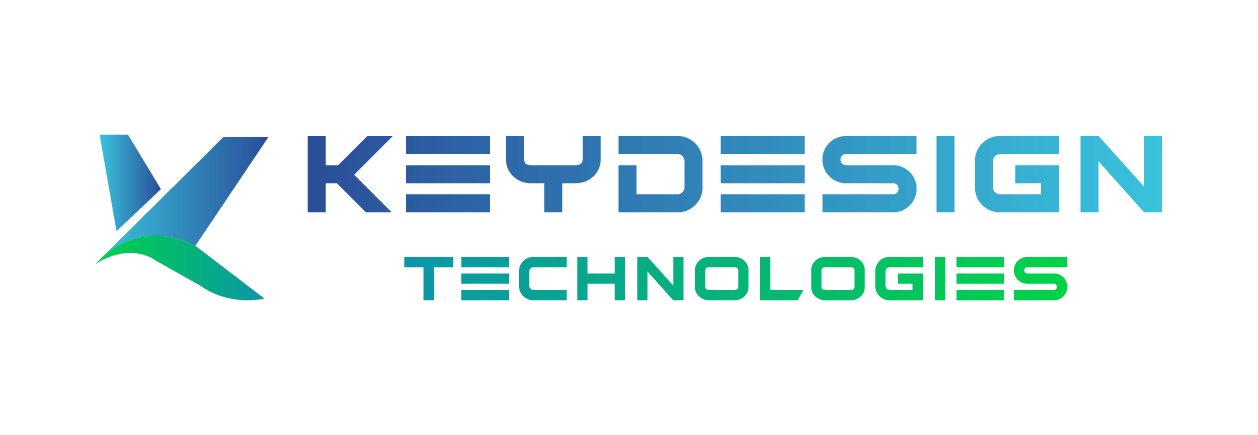
Introduction to Recruitment Trends
Overview of the Current Recruitment Landscape in India
The recruitment landscape in India has evolved significantly over the past decade. Companies are shifting from traditional hiring practices to more dynamic approaches. Recruitment is becoming technology-driven, with various platforms showcasing job openings and talent pools.
Technology has played a crucial role in shaping this landscape. Job portals, social media, and artificial intelligence are now central to the recruitment process. Employers seek candidates through these channels to find the best talent. Companies increasingly rely on data analytics to improve their hiring strategies.
Importance of Professional Staffing Services
Professional staffing services are essential in this changing environment. These services provide expertise in sourcing and managing talent. They help companies navigate the complexities of recruitment. Staffing agencies offer a pool of pre-screened candidates, saving time for employers.
Professional staffing services also enhance the hiring experience for candidates. They provide support throughout the recruitment process, ensuring a smooth transition. This is vital for attracting top talent in a competitive market.
Predicted Changes in Recruitment Strategies by 2025
By 2025, recruitment strategies in India are expected to undergo significant changes. Companies will likely focus on diversity and inclusivity in their hiring processes. Emphasis on candidate experience will also increase, leading to more personalized approaches.
Moreover, remote work will redefine the talent pool. Businesses will look beyond geographical boundaries to find qualified candidates. This shift will necessitate new recruitment techniques, integrating technology with human insight.
Recruitment will become more proactive, with companies seeking talent before positions become available. Engaging potential candidates earlier will become a standard practice. The future of recruitment is bright, with professional staffing services playing a key role in this transformation.
Technological Advancements in Recruitment
Role of AI and Machine Learning in Staffing Services
Artificial intelligence (AI) and machine learning are reshaping recruitment strategies. These technologies automate candidate sourcing and screening. They analyze resumes quickly and identify suitable candidates based on skill sets. AI tools can match job descriptions with profiles in seconds. This efficiency streamlines the hiring process significantly. Furthermore, AI-driven chatbots interact with candidates, providing instant responses. They enhance candidate experience and engagement throughout the recruitment journey.
Influence of Data Analytics on Recruitment Decisions
Data analytics plays a crucial role in modern recruitment. Companies leverage analytics to gain insights into hiring trends. They analyze data from past recruitment processes to refine strategies. This analysis helps identify effective sourcing channels and candidate behaviors. Companies can predict candidate success based on historical data. Additionally, data-driven recruitment decisions reduce bias in hiring. Analytics tools offer objective assessments, ensuring fair evaluations of candidates.
Emerging Recruitment Platforms and Tools
The landscape of recruitment tools is evolving rapidly. New platforms facilitate remote hiring and virtual interviews. Tools like applicant tracking systems (ATS) enhance workflow efficiency. They centralize candidate information, enabling easier team collaboration. Moreover, social media platforms play a vital role in recruitment. Recruiters use these platforms to target specific talent pools effectively. Emerging tools also provide features like video interviewing and skills assessments. These innovations ensure a more robust recruitment process.
Shifts in Candidate Expectations
Increasing Demand for Remote Work Opportunities
In 2025, candidate expectations in India will shift significantly. Many job seekers will prioritize remote work opportunities. The COVID-19 pandemic accelerated this trend. Candidates now prefer flexible working arrangements. They seek jobs that allow them to work from home or hybrid models. Employers must adapt to this demand to attract top talent.
Importance of Company Culture and Values
Another critical shift involves the importance of company culture and values. Candidates increasingly want to work for organizations that align with their beliefs. They look for companies promoting diversity and inclusion. A strong corporate culture is a major factor in the decision-making process. Organizations must clearly communicate their values and culture to stand out in a competitive job market.
Flexibility and Work-Life Balance as Priorities
Finally, flexibility and work-life balance have emerged as top priorities for candidates. Job seekers value positions that allow them to balance their personal and professional lives. They desire flexible hours or the option to work part-time. Companies that offer these benefits will find themselves more appealing to potential applicants. As a result, recruitment strategies will need to evolve to meet these changing expectations.
Impact of the Gig Economy
Rise of Freelance and Contract Work in India
The gig economy has seen significant growth in India. Freelancing and contract work have become common. Many professionals prefer this flexibility. They seek opportunities that allow for work-life balance. The rise of digital platforms has facilitated this shift. Workers can connect with clients easily. This has led to a diverse workforce. Individuals from various backgrounds participate in the gig economy.
Integration of Gig Workers into Traditional Staffing Models
Companies are starting to integrate gig workers into their staffing models. Traditional recruitment strategies are evolving. Organizations now recognize the value of gig workers. These workers provide specialized skills on an as-needed basis. This integration also helps businesses manage costs. Companies can scale their workforce efficiently. They benefit from the expertise of freelancers while maintaining core staff.
Legal and Regulatory Considerations for Gig Work
The growth of gig work raises legal and regulatory challenges. Employment laws may not cover all gig workers. This can create issues regarding benefits and protections. There is an ongoing discussion about defining gig work. Policymakers are exploring frameworks to protect these workers. Issues such as minimum wage and social security are critical. Compliance with these regulations is essential for companies engaging gig workers.
Diversity and Inclusion in Recruitment
Growing Emphasis on Diverse Hiring Practices
The recruitment landscape in India is shifting. Companies recognize the importance of diverse hiring practices. They understand that a diverse workforce leads to innovation and creativity. Organizations are actively seeking candidates from various backgrounds, including different genders, ethnicities, and abilities. This broadens the talent pool. It also reflects the diverse customer base that companies serve.
Strategies for Fostering an Inclusive Workplace
To foster an inclusive workplace, companies can implement several strategies:
- Unbiased Job Descriptions: Write clear job descriptions that avoid gendered language.
- Diverse Interview Panels: Create interview panels with diverse members to mitigate bias.
- Employee Resource Groups: Establish groups that support underrepresented employees.
- Training Programs: Offer training on unconscious bias to all employees.
- Flexible Policies: Implement flexible work policies that accommodate various needs. These strategies ensure that all employees feel valued and included, thus enhancing their engagement and productivity.
Impact of Diversity on Business Performance
Research shows that diversity positively impacts business performance. Companies with diverse teams tend to outperform their less diverse counterparts. They achieve higher sales and profitability. Diversity fosters creativity and problem-solving from different perspectives. This leads to better decision-making. Furthermore, a diverse workforce enhances a company’s reputation, attracting more top talent. Firms that prioritize diversity and inclusion are better prepared for the challenges of the future.
The Role of Recruitment Agencies
How Staffing Agencies are Adapting to Market Changes
Recruitment agencies are evolving rapidly to meet the demands of the changing job market. They are using technology to streamline processes. This includes implementing artificial intelligence to match candidates with job openings effectively. Agencies are also focusing on data-driven decision-making. They analyze market trends and skills demand to better serve both employers and candidates.
Building Strong Employer and Candidate Relationships
Strong relationships are key for recruitment agencies. They work closely with employers to understand their needs. This helps agencies present the best candidates. On the candidate side, agencies provide personalized support. They offer resume reviews and interview coaching. These efforts lead to better job placements for candidates and satisfied employers.
Future Outlook for Recruitment Agencies in India
The future for recruitment agencies in India appears bright. As businesses continue to expand, the need for skilled professionals will rise. Agencies will play a critical role in bridging this gap. They are expected to enhance their service offerings. This includes focusing on niche markets and specialized skills. The evolution of recruitment agencies will shape the professional landscape in India.
Conclusion: Preparing for 2025
Summary of Key Trends Shaping the Future of Recruitment
The landscape of recruitment in India is evolving. Technology integration is a significant trend. Companies are embracing AI and data analytics to streamline hiring processes. Remote work has also changed recruitment dynamics. Employers now seek candidates who can adapt to flexible work environments. Diversity and inclusion initiatives are gaining momentum. Organizations are focusing on building diverse teams, reflecting a wider range of perspectives.
Recommendations for Businesses to Stay Competitive
To remain competitive, businesses must adopt new technologies. Investing in AI tools can enhance candidate screening and selection. Organizations should also prioritize upskilling their HR teams. This ensures that personnel are equipped to handle modern recruitment challenges. Networking and building relationships within industry sectors is crucial. Attending conferences and webinars can also provide valuable insights and trends. Finally, fostering a strong employer brand will attract top talent in a crowded marketplace.
Final Thoughts on the Evolution of Professional Staffing Services
The evolution of professional staffing services is marked by adaptability. As recruitment trends shift, so must the strategies employed by staffing firms. Emphasizing candidate experience will set successful firms apart. Moreover, continuous learning and development will help staffing professionals meet changing demands. The future of recruitment in India is promising, provided that businesses remain proactive and responsive to emerging trends.
